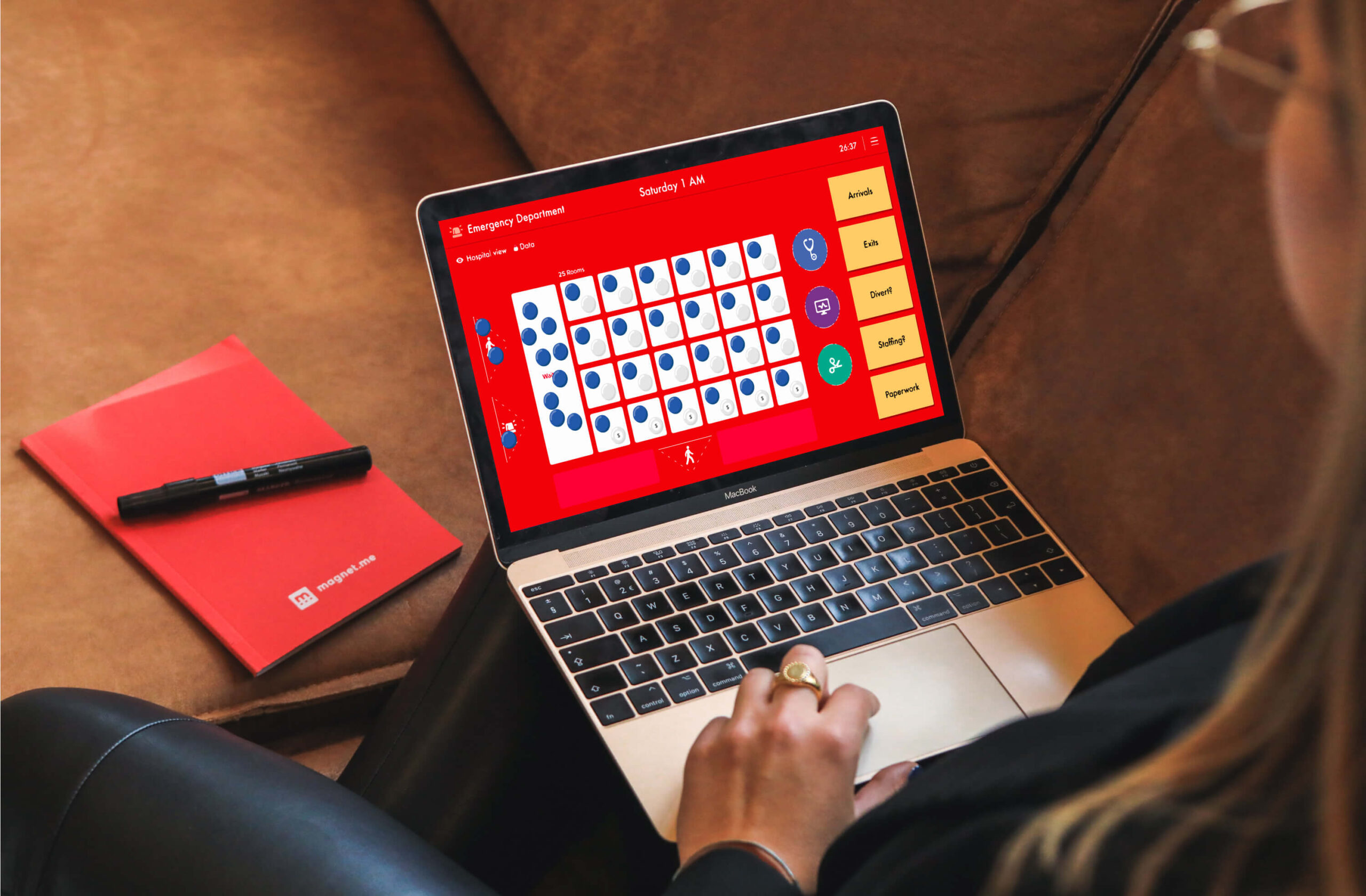A team of educators at Vanderbilt University Medical School recently used Zoom to run the first-ever remote delivery of Friday Night at the ER to more than 150 second- and third-year medical students, and considered it to be nearly as effective as playing the game in person.
“I think it went really well, overall,” explained Dr. Jennifer Green, Assistant Professor of Internal Medicine and Pediatrics. “The places where we had bumps did not shock me. They happened when we were moving people in and out of breakout rooms in Zoom or due to student connectivity issues, so these were anticipated technology challenges. Visibility of the beads and arrivals board were also obstacles that required attention.”
Green and other course directors led the sessions by starting with 20 students in a single Zoom room, then dismissing teams of four students to breakout Zoom rooms focused on a single game board staged at the university’s simulation center, the Center for Experiential Learning and Assessment (CELA). Each team of four students was given an overview of game play by a course director, completing the Friday noon hour. The students then directed a single CELA educator to move game parts for them by using phrases such as “the ER would like three extra staff.” After two hours of game play, the teams returned to the large Zoom room for an hour-long debrief led by a course director.
“I really think that the students got 85% of it,” Green observed. “There are some nuances they may not have picked up, but this exercise was part of a health systems science course that they have been in since the first year of medical school, so they are already systems minded and have clinical context for the game.”
CELA Director Dr. Arna Banerjee, who is also Assistant Dean for Simulation, was central to the successful online pilot, according to Green. Banerjee had never played Friday Night at the ER prior to the experiment, and not only quickly taught herself how the game works, but masterminded how and when the educators would toggle back and forth between Zoom rooms, how to film and staff the game boards at the sim center, and how to prepare the students in advance by emailing descriptions of their roles and paperwork, as well as instructions for how to ask questions mid-game using the Zoom chat feature or by texting the course directors.
“It was certainly a huge workload,” explains Green. “I don’t know if this would be worth doing virtually if you were not doing it multiple times because of the ability of the sim center to get facile with learning things like going ahead and flipping over the cards and getting the board prepared for play. But because we had already planned to do it eight times, it made sense to put in the extra costs and time upfront.” Student evaluations of the activity were predominantly positive, with many conveying appreciation for the ability to learn systems thinking skills within a virtual environment.
To learn more about the Vanderbilt pilot, pose questions to Green and offer your own ideas for remote adaptations, join the COVID-19 conversation in our Community Forum. Simply create an account and log in (customers only), or if you already have an account, join the conversation.


